Tim’s Top 20 Reads of 2015
As you prepare to brave the roads, rails, and/or skies this holiday season, or just squirrel away under a pile of blankets, consider putting down the glowing screen and try some old school entertainment and enlightenment in the form of a book.
Here are a handful of memorable reads from my 2015 that have sparked interest in new ideas, rekindled affection for long-time hobbies, and provided superb content for cocktail party small talk. (No points docked for reading any of these on a glowing screen. Well, except for the scratch & sniff book.)
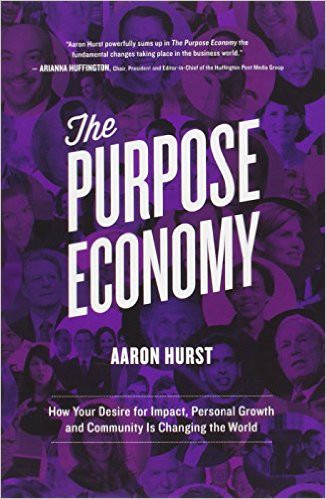
The Purpose Economy: How Your Desire for Impact, Personal Growth and Community Is Changing the World
Clan culture in the office environment can help companies accomplish a great deal, in addition to often providing employees with loads of coffee, a stocked beer fridge, and an enviable kinship with coworkers. Purpose culture is more elusive, and arguably more necessary if your organization has ambitions to change the world. If you want to level up your company culture in 2016, turn the pages of this tome written by Aaron Hurst, founder of the Taproot Foundation and CEO of Imperative.
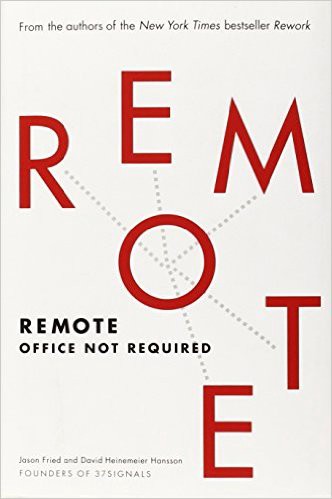
Remote: Office Not Required
The workplace of the 21st century is rapidly changing thanks in large part to technological advances, and an assist from recent research in organizational behavior. Nowadays most of us can do our work nearly anywhere there’s an Internet connection. These changes provoke questions and a large helping of anxiety and stress about what it means to manage staff when you can’t see them, or how to evaluate someone’s job performance when work falls outside of the normal 9-to-5. Written by the co-founders of 37signals, creator of the Basecamp project management software, Jason Fried and David Hannson set out to help us understand how our organizations can leverage this new-found flexibility, and offer tips to companies as well as remote workers for achieving success when miles, or coffee shops, apart.

The Essential Scratch & Sniff Guide to Becoming a Whiskey Know-It-All: Know Your Booze Before You Choose
When someone serves you a glass of bourbon do you worry they’ll ask you what you think and all you’ll be able to muster is, “Looks brownish and smells alcohol-y”? Then you might benefit from and enjoy this new scratch and sniff whiskey guide. The book allows you to read with your nose as you hone your olfactory system to go boldly into that next brown spirits encounter. Wine more your speed, you say? There’s a version of the book for aspiring oenophiles too.
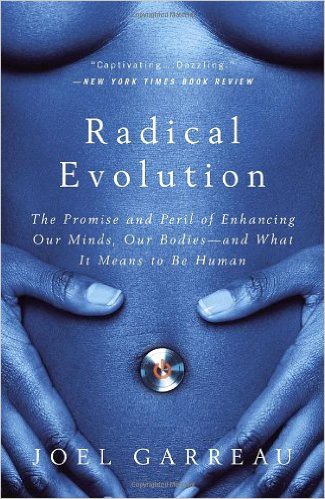
Radical Evolution: The Promise and Peril of Enhancing Our Minds, Our Bodies — and What It Means to Be Human
Have you been hearing about exponential technologies, the Singularity, or Moore’s Law recently and thought, huh? Even though this book dates to 2006, author Joel Garreau offers a great primer to these topics and how they might change the world. At times you’ll be inspired by the promise of humanity and then just as quickly scared to death by the ease at which autonomous nanobots could destroy the Earth. No longer the stuff of science fiction, the future is now. Read up. (h/t to Adam Huttler for recommending this read.)
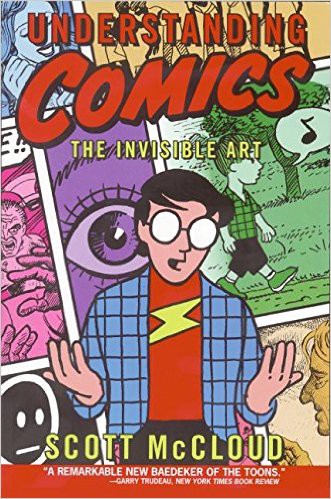
Understanding Comics: The Invisible Art
There once was a time when you’d say “comic” to me and I’d immediately picture a single-frame Far Side cartoon. These days, I am more enlightened about comic art thanks to this in-depth exploration of longer form comics and graphic novels. Hat tip to my coworker, and comic artist himself, Jason Tseng who tipped me off to this “innovative comic book [that] provides a detailed look at the history, meaning, and art of comics and cartooning.” After finishing the book you might just find yourself reaching for artist brushes, sketch pads, and author Scott McCloud’s follow-up book, Making Comics: Storytelling Secrets of Comics, Manga and Graphic Novels.
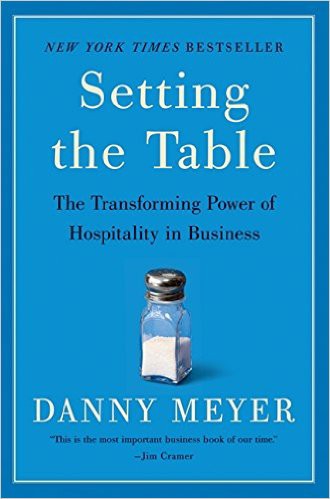
Setting the Table: The Transforming Power of Hospitality in Business
My friends in the restaurant industry tell me this is the playbook for how to deliver great service in the restaurant world. It’s written by Danny Meyer, the same guy behind the Shake Shack revolution that has so many of us standing in long lines for cheesy fries and custard shakes. If your business ever comes into contact with people, then Meyer’s read can help you hone that surprisingly rare competitive advantage — stellar service and a great experience for your patrons.
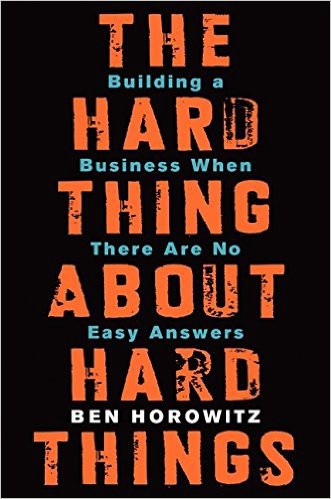
The Hard Thing About Hard Things: Building a Business When There Are No Easy Answers
Congratulations on the new company you just started or your recent promotion to manager! Here’s the book you need to read — STAT! — to fill in the gaps between theory and practice as the rubber meets the road in your professional life. Ben Horowitz’s advice often flies in the face of conventional wisdom to tell it like it is. Don’t reinvent the management wheel. The advice found in this quick read will save you a lot of sleepless nights (or at least comfort you that you’re not the only one awake).
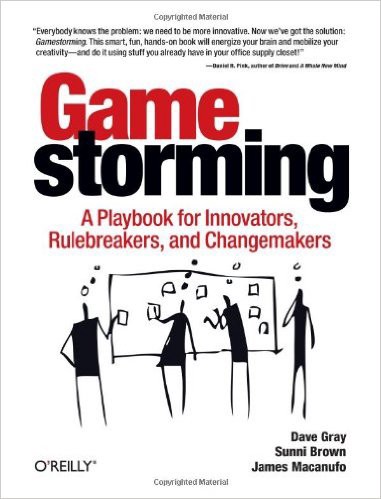
Gamestorming: A Playbook for Innovators, Rulebreakers, and Changemakers
Hey, let’s brainstorm! If you’re less than excited at the thought of standing with your coworkers writing things on the conference room whiteboard yet again, then check out Gamestorming. The authors provide 80 “games” to “help you break down barriers, communicate better, and generate new ideas, insights, and strategies.” The authors group the 80 games into Games for Opening, Games for Exploring, and Games for Closing to help you identify the best tools for the conversation you want to have. My personal favorite: The Pre-Mortem, or how is what we just committed to with so much excitement and promise going to end in a smoldering heap of crushed hopes and dreams? (My description, not the authors.)
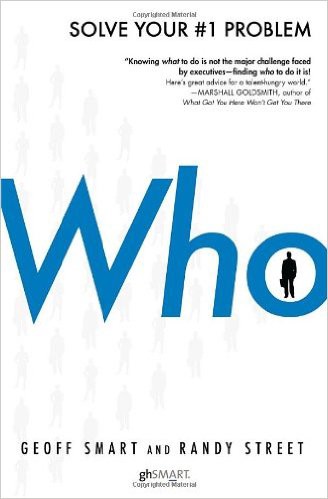
Who
Are you new to interviewing job applicants? Want to be more certain that who you are about to hire has what it takes to fulfill the requirements of the position? Geoff Smart and Randy Street sketch out a step-by-step process that will help you go confidently from A to Z during the search process. They start by showing how you can create a scorecard to use so you don’t just pick someone who “feels right” and later find out you were wrong. They then walk you through how to source candidates, outline the four different interview types to help you learn more about candidates, and finally explain how to sell your prospective employee on the gig in order to seal the deal. Who will have you feeling more confident that the people you hire will be the people your organization needs to help it achieve its goals.
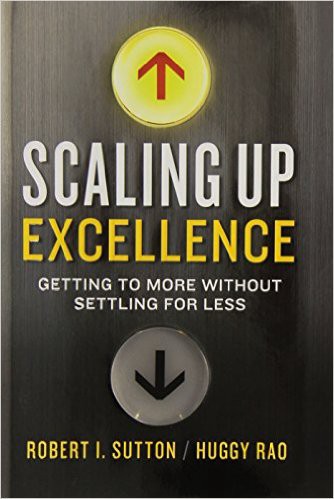
Scaling Up Excellence: Getting to More Without Settling for Less
How can companies quickly scale without losing what originally made them successful in the first place? Using a wealth of research and real-life case studies, authors and Stanford professors, Robert Sutton and Huggy Rao draw on rich material to “identify the key scaling challenges that confront every organization.” They go on to explain, among other things, how you can link “hot causes” to “cool solutions”, and discuss the trade-offs companies must make when using a “Buddhism” versus a “Catholicism” scaling approach. (That last one is their analogy referring to individualized approaches tailored to local needs or to replicate the same practices and customs as an organization or program expands.)
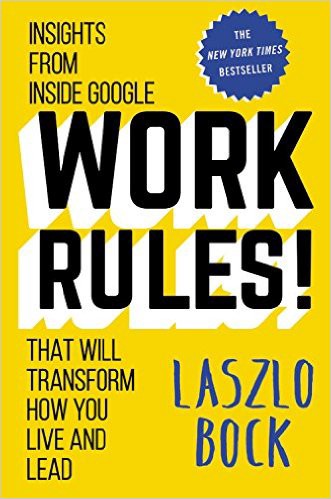
Work Rules!: Insights from Inside Google That Will Transform How You Live and Lead
What can 40,000 people, an innovative workplace, and a team of PhD statisticians offer companies around the world? Crack open this book by Google’s chief People person Laszlo Bock to find out. It’s so much more than just giving your people free food (although Mr. Bock explains what’s behind that famous perk). The book covers how to build a great company culture; rules for finding and hiring employees, for mass empowerment, for performance management, and rules for screwing up. A myriad of the experiments and research Google has undertaken fill the pages and bring the content to life.
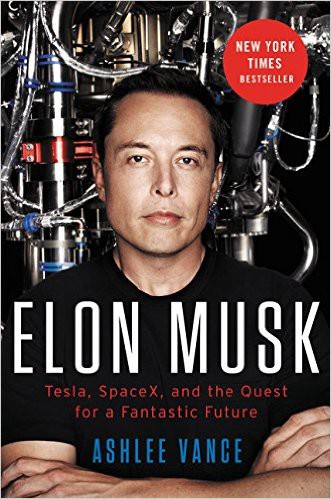
Elon Musk: Tesla, SpaceX, and the Quest for a Fantastic Future
Elon Musk seems to be everywhere nowadays. Hyperloop? Musk. Sexy battery-powered cars? Musk. Colonize Mars / rescue a stranded Matt Damon? Musk. When I saw that there was a new biography written by Ashlee Vance — who was given exclusive access to Musk for this book — I quickly downloaded a copy to my Kindle (ok, full disclosure: the Kindle app on my iPad) and I devoured it. I came away with a pressing need to buy a Tesla and also with a fascination for how this guy, who’s by all account not very nice, can get his workers to work 100 hours a week by sketching out such a powerful singular purpose— to save humanity. See also in this list: The Purpose Economy. (Side note: since reading this biography I’ve been bugging my friends with this question, “Do you have to be an a$$hole leader of a company in order for it to change the world?”)
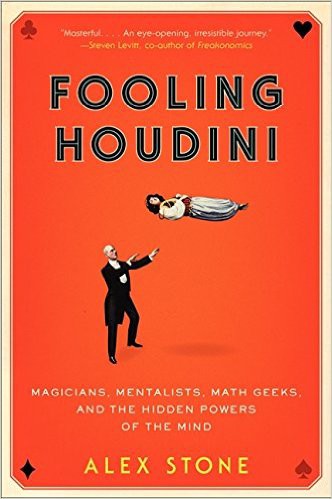
Fooling Houdini: Magicians, Mentalists, Math Geeks, and the Hidden Powers of the Mind
Uh, let’s just say I have a “friend” who even in his early 20s had a few magic tricks he’d show his friends. Nothing over the top, just a few card and coin tricks. Was he very good? Nope. So when I heard about this book by Alex Stone (a writer for The New York Times and Wall Street Journal) that begins at the Magic Olympics, I figured it was worth a closer look, you know, for this friend of mine. It’s a fascinating read that investigates “some of the lesser-known corners of psychology, neuroscience, physics, history, and even crime, all through the lens of trickery and illusion.” Mini-spoiler: In one study, Alex was able to remove a watch from a woman’s wrist — even while its alarm was going off — without her even noticing. It’s called brain blindness, and yes, it’s why you shouldn’t text and drive, or wear a watch around Alex Stone.
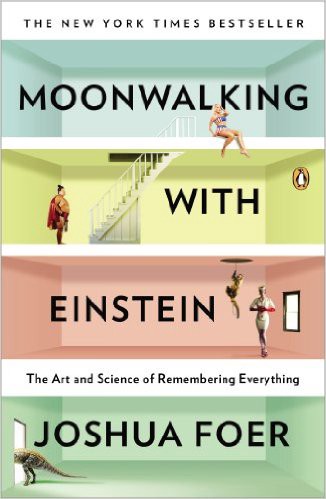
Moonwalking with Einstein: The Art and Science of Remembering Everything
Quick, what did you eat for breakfast yesterday? Don’t recall? I do, but that’s only because I eat the same thing every morning, a delicious bagel from Best Bagel on 35th Street. The second “experiential journalism” book on my list — if you already forgot, the previous book was about a journalist who did magic — is about the art and science of remembering everything. In a similar way to Alex Stone’s magic thesis, Joshua Foer dedicated a year of his life in order for him to remember what he ate for breakfast (my words, not his). Foer “draws on cutting-edge research, a surprising cultural history of remembering, and venerable tricks of the mentalist’s trade to transform our understanding of human memory.” Add this book to your Amazon queue before you forget.
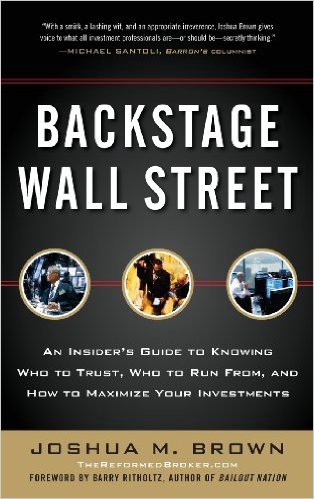
Backstage Wall Street: An Insider’s Guide to Knowing Who to Trust, Who to Run From, and How to Maximize Your Investments
Think this is another book about Wall Street? OK, yes, maybe I should have said think this is just another book about Wall Street. Joshua Brown, author of The Reformed Broker blog and CEO of Ritholtz Wealth Management, offers “clear and proven advice on how to navigate all the snares set by the lords of Wall Street.” Want to learn about how the person who set up your company’s 401(k) account years ago, and who you haven’t heard a peep from since, is still making money from you? Or how to minimize potentially hundreds of thousands of dollars over your lifetime paid to your 401(k) fund provider? And what the hell is an ETF? Crack open Josh’s book.
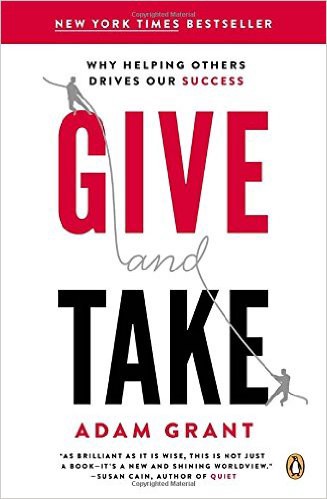
Give and Take: Why Helping Others Drives Our Success
I first learned about organizational psychologist Adam Grant’s work when chatting with my friend Amy Wrzesniewski, herself an organizational psychologist teaching and working out of Yale’s School of Management. Since that time, Adam is seemingly everywhere I look (granted I follow him on Twitter). In addition to his first book about how successful people connect with people, he’s co-authored a series of articles about women at work with Facebook COO Sheryl Sandberg for The New York Times, moderated this panel at Google about making work better, and authored another book about how non-conformists move the world. Fun fact: Adam was also a professional magician. So, if you ever have the pleasure of meeting him, you might want to keep an eye on your watch (See also: brain blindness and the above Fooling Houdini entry if that reference doesn’t make any sense).
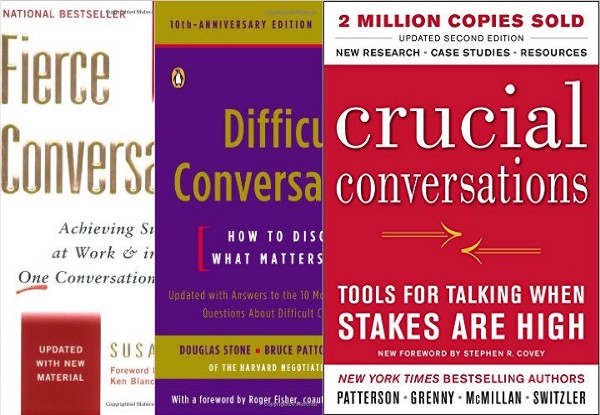
Crucial Conversations: Tools for Talking When Stakes Are High
Difficult Conversations: How to Discuss What Matters Most
Fierce Conversations: Achieving Success at Work and in Life One Conversation at a Time
That’s right, you too can have challenging conversations in three exciting flavors — Crucial, Difficult, and Fierce! This past year, I set out to research various conversation frameworks that we could use at Fractured Atlas to provide all of us with the skills and shared vocabulary necessary to help alleviate the stress and lack of the “right words” when conversations turn from casual to crucial. As part of this process, I read the three books most frequently mentioned to help advance these skills— Crucial Conversations, Difficult Conversations, and Fierce Conversations (h/t Aaron Dworkin for putting Fierce on my radar.) Long story short (maybe there’s another blog post here), we ended up opting for the Crucial Conversations model. That said, I found helpful tips in all of the books. I also highly recommend this TED Talk by Susan Scott, author of Fierce Conversations.
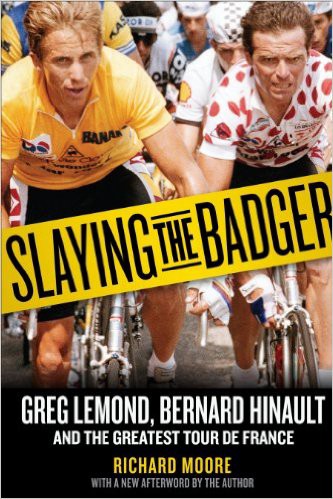
Slaying the Badger: Greg LeMond, Bernard Hinault, and the Greatest Tour de France
When I was as kid growing up in Indiana, I remember watching clips of the Tour de France on ABC’s Wide World of Sports. I can still remember my excitement in 1989 when Greg Lemond won the three-week-long race over Frenchman Laurent Fignon by 8 seconds (to this day still the smallest margin of victory ever in the race’s over 100-year history). Heartbreaking for Fignon and the French, glorious victory for LeMond and my young cycling Hoosier self raised on the cult cycling classic movie Breaking Away. Slaying the Badger focuses on a period a few years before the 1989 race as Lemond struggles to become the first American to win the Tour de France. If you like cycling, or are game for cautionary tales about what happens when two people on the same team are pitted against each other, where there’s betrayal on a grand scale, and it all plays out for a global audience, this book’s for you. (If you’re not, ESPN made a film about the story, and you can watch it on Netflix in under 90 minutes.)
Hope you enjoy these reads and here’s to a wonderful 2016 filled with many more!
About Tim Cynova
Tim wears a multitude of hats, all in service of creating anti-racist workplaces where people can thrive. He currently is co-CEO of Fractured Atlas (an entirely virtual organization with staff spread across multiple states and countries) and a Principal of the consulting group Work. Shouldn't. Suck. He serves on the faculty of Banff Centre for Arts & Creativity and The New School teaching courses in People-Centric Organizational Design; he's a trained mediator, and a certified Senior Professional in Human Resources (SPHR). Earlier in his career, Tim was the Executive Director of The Parsons Dance Company and of High 5 Tickets to the Arts in New York City, had a memorable stint with the Cincinnati Symphony Orchestra, was a one-time classical trombonist, musicologist, and for five years in his youth he delivered newspapers for the Evansville, Indiana Courier-Press. Also, during a particularly slow summer, he bicycled 3,902 miles across the United States.


